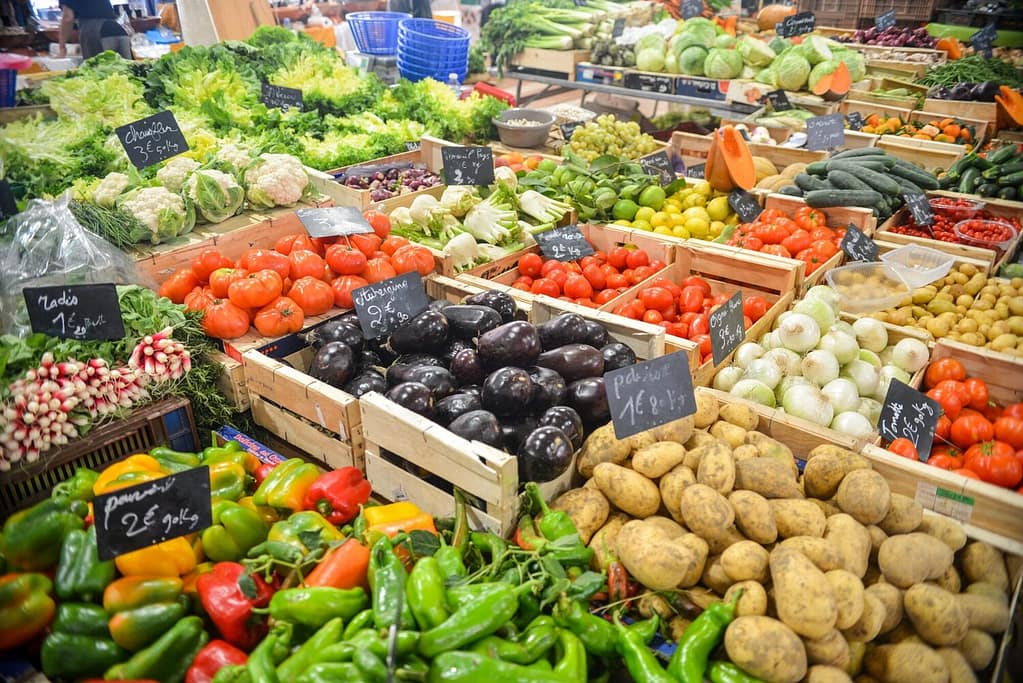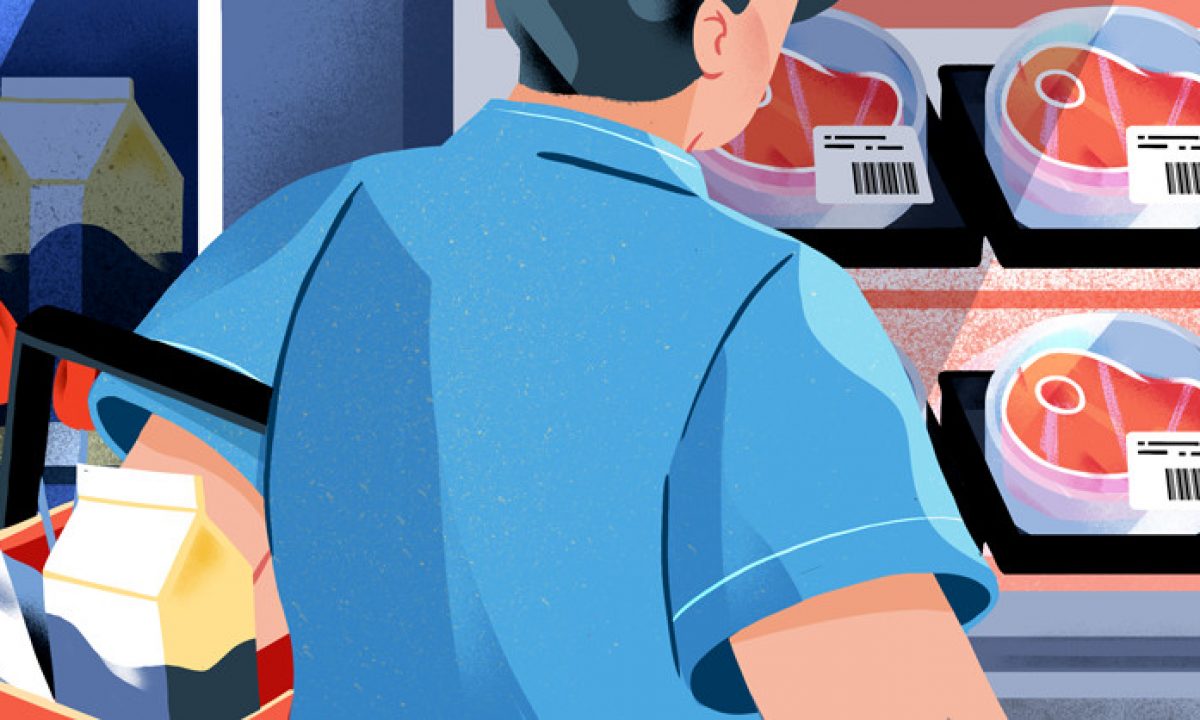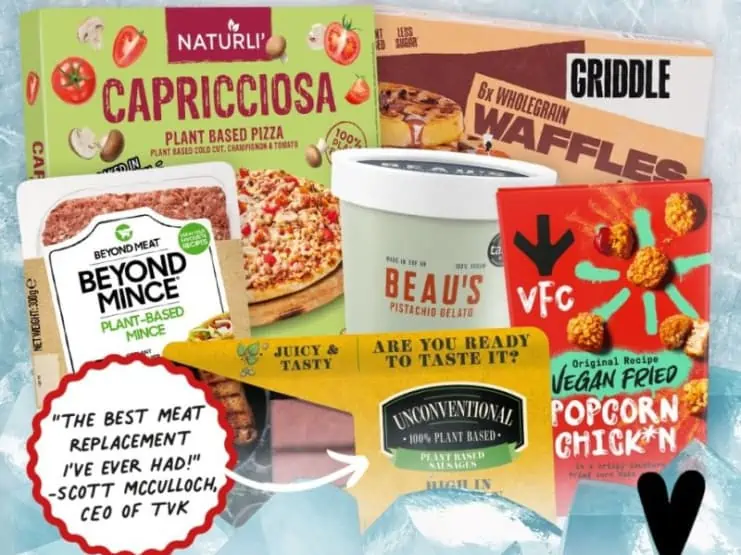Of the current trends on the rise among consumers around the world, a new desire for increased sustainability in almost all aspects of daily life is one of the fastest growing. In fact, almost 30 percent of consumers say they want to improve the environment, with 23 percent wishing to reduce production waste, 22 percent wishing to reduce their carbon footprint, and 17 percent concerned with animal welfare.
The desire for sustainability is spreading far and wide, impacting the materials enterprises use, such as organic, naturally harvested fibers or products made from recycled materials, as well as the techniques leveraged for daily processes, like using predictive analytics and testing 3D digital samples prior to production. The sustainability movement has even made its way to the food industry, impacting daily diets.
Since the beginning of the twentieth century, technological and geopolitical changes have revolutionized food production and consumption. Over the last 100 years, agriculture and diets worldwide have changed much more rapidly and profoundly than at any time in history, and it’s happening again today with the trend towards sustainability. The current trend has increased the demand for a more environmentally friendly food production system, especially when it comes to proteins.

Presently, in high-income nations, dietary protein is now predominantly supplied by industrially produced animal products such as meat, dairy, and eggs. However, producing protein from conventionally farmed animals is particularly problematic as global demand continues to rise, worsening environmental and social consequences.
The practice of large-scale industrial animal agriculture harms animals, damages human health, and degrades the environment. The sustainability movement is driving, in part, the rapid growth and use of alternative protein sources.
“More than any other innovation, alternative proteins simultaneously address multiple sustainable development goals: promoting good health and well-being, slashing hunger, promoting responsible production and consumption, reducing land and water use, and cutting carbon emissions,” said Levana Shifman, executive director of the Modern Agriculture Foundation in Israel, which last year founded the Better Plate track in MassChallenge Israel’s Accelerator, the Middle East’s first alt-protein accelerator. “The game-changing technologies are the engine behind a revolution of our entire food system, leading us away from the environmental, food security and health abyss, towards a more sustainable future.”
Alternatives to meat and other animal products have been around for millennia in the form of protein-rich foods like soybeans, peas, and nuts. However, alternative protein can also refer to more recent innovations in mimicking foods that are traditionally animal-based, including eggs, dairy, and different types of meat.

From plant-based eggs to cultivated meats produced from cultured animal cells, the alternative protein industry has been attracting growing attention from consumers and investors alike. The reason for the sudden interest is rooted in the sustainability movement, as alternative protein sources offer a variety of benefits related to environmental preservation.
For example, animal agriculture is one of the most polluting industries on the planet, with 32 percent of methane emissions coming from livestock digestion and waste. Furthermore, concentrated animal feeding operations (CAFOs) are major point sources for air and water pollution throughout the US, largely because of the animal manure they generate.
CAFO barns are designed to house hundreds, and often thousands, of animals at a single time and can produce millions of tons of waste per year. By one Environmental Protection Agency estimate, CAFOs generate up to twenty times more waste than the entire national human population combined.
Numbers like the ones above are helping make the link between climate change and animal agriculture more widely understood and publicly accepted, which is in turn fueling the growth of protein thanks to the advantages the shift in food production can make. In fact, the UN estimated that by “shifting towards and embracing alternative sources of protein,” humans could cut methane emissions by 45 percent, which would be critical to slowing global warming.
On top of environmental benefits, alternative proteins offer a wide range of health benefits, which is also at the forefront of consumers’ minds along with the sustainability. Diets rich in animal products contribute to high cholesterol, heart disease, and inflammation associated with autoimmune disease, but alternative proteins can help curb these impacts.

Having alternative proteins instead of traditional meat can help decrease your risks of high cholesterol, Type 2 diabetes, high blood pressure, diverticular disease and certain types of cancer, including colorectal, ovarian and breast cancers. Additionally, individuals who consume all of their protein from non-meat sources tend to have lower body weights compared to their meat-eating counterparts, and they have a lower risk of obesity.
The realized benefits of alternative proteins have the market value skyrocketing at a swift pace. The Global Alternative Protein Market is expected to reach $36.61 billion by 2029, growing at a CAGR of 12.4 percent, according to Research & Markets.
Furthermore, a recent Good Food Institute Israel report found that, through June, Israeli alternative protein startups and companies this year had raised $320 million, placing the small Middle Eastern state second only to the United States ($857 million) in terms of alternative protein investments. With such large investment numbers across the globe, enterprises are increasingly looking for partnerships and deals with companies already ahead in the sector, hoping to add alternative proteins to their repertoires before the competition does.
Recently, Mush Foods, an Israeli foodtech startup, which pioneered a game-changing method of cultivating mycelium, a sustainable protein, teamed up with several fungi fermentation companies from abroad to form a new international trade association: The Fungi Protein Association (FPA).
“Israel is on the cutting edge, innovating foodtech solutions addressing major global challenges including the climate crisis, food security, and nutrition. The ‘Startup Nation’ is also situated in a region considered particularly vulnerable to climate change, with the Middle East heating up twice as fast as the global average,” noted Shalom Daniel, co-founder and CEO of Mush Foods. “It’s no surprise then that a young Israeli company is a founding member of this global consortium alongside well-established American, British and European players.”
“Mush Foods’ pilot in Manhattan pilot recently was a resounding success, reflecting consumer demand for this kind of alternative,” continued Daniel. “Twenty percent of 6,000 employees at major financial institutions in New York, chose to purchase Mush Foods’ 50CUT hybrid beef and mycelium burger over some 10 other main dish options.”

The FPA will represent the interests of its member companies, including advocating for fungi protein in public policy, conducting consumer research, and more. While mushrooms have been used for centuries as meat replacements, various methods of fungi fermentation are creating a new crop of high-protein, high-fiber, meat alternatives. As such, fermented fungi are taking the alternative protein market by storm. Alongside plant and cell-based protein, it now represents one of the three mainstays of the burgeoning meat alternative sector.
Founded in 2021, the Israeli startup joins this brand-new collaboration alongside major British, American, and European companies including Quorn, Nature’s Fynd, Enough, The Better Meat Co., The Protein Brewery, Prime Roots, Mycotechnology, Aqua Cultured Foods, and Mycorena, plus NGOs ProVeg and The Good Food Institute.
“The world needs more protein, and fungi fermentation offers a delicious, sustainable way to do just that,” said Marco Bertacca of Quorn Foods, the British company that took the lead on the new international initiative. “We’re excited to partner with our fellow fungi enthusiasts to raise awareness and appreciation of the wonderful ways fungi can improve human health and the health of our planet.”
Co-founded by Professors Dan Levanon and Dr. Idan Pereman of the Migal Galilee Research Institute, Israel’s leading academic center researching fungi, Mush Foods grows mycelium, the delicate and highly nutritious underground network of threads that constitutes more than 90 percent of the fungi’s biomass. Cultivated with an efficient technology that reduces waste by feeding on upcycled food industry side streams, Mush Foods’ mycelium is a complete protein containing all the essential amino acids.

Blended with ground animal protein, Mush Foods’ mycelium slashes meat consumption in half, reducing carbon emissions in addition to land and water usage, while minimizing costs and boosting the nutritional profile. The overwhelming consumer enthusiasm for the 50CUT hybrid solution has fueled plans for additional pilots in New York, plus Chicago, Boston, and California.
“Mush Foods looks forward to working with our international partners to advance clean, fungi-based meal options which can feed our growing global population while nourishing our only planet. As our national leaders collaborate with their international partners at COP27 in Sharm El-Sheikh, our private sector leaders are likewise contributing to the global efforts to combat urgent, shared threats,” remarked Daniel. “We’re in this together. As the industry develops in additional countries, we all reap the benefits.”








